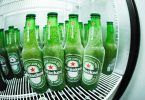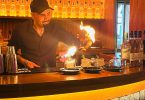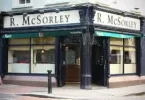Using Food to Drive Your Pub Sales

Hugo Arnold: “Being paid should be the response to an exchange. Too often I’m unimpressed by that exchange.”
The trick is in getting the profit margins from food up, he explained.
“The food produced should be the result of your vision but the ‘elephant in the room’ is the chef,” he added, “A lot of people live in fear of chefs because they’re well aware they cannot step in and do it themselves.
“Facing up to this issue is not always easy, but it needs to be tackled. You may not know how your till works, but you can deal with it when it goes wrong”.
And pubs that don’t regularly change the menu run the risk of becoming boring.
“If you want people to see you as a local, visiting frequently, you have to retail that space in an imaginative way. A lot stays the same, but little things keep it fresh and alive. Your customer might not always notice enough to comment, but they feel the love!”
He also believed that chefs should chalk-up the blackboard blackboard menu themselves. It will have a huge effect on driving the dynamic with the customers, he said, “… although I also think the chef is often the worst person to write the actual menu. Writing the blackboard is about taking ownership.”
The pub’s food production process should be discussed, documented and then delivered on.
Proprietors have to measure that delivery and then amend it where necessary.
Hugo also gave his predictions for the next five years in food trends:
- Accessibity
- Generosity
- Service
- Comfort
- Real food
“These are areas that are very hard to pin down as a food operator,”| he explained, “But constantly striving helps to keep you on the ball!”
Pubs have the advantage over restaurants
Pubs have the advantage over restaurants in being accessible (small plates, low entry levels) and welcoming.
“Then there’s the generosity of spirit” he added, “which makes the customer feel special.”
Does your pub radiate comfort through its warmth, its hospitality and its welcoming atmosphere?
Competition is rife across the high street; pubs compete with each other but also for the €uro in everyone’s pocket. The equation between customer, staff, product, delivery and ultimate profitability is complex, he said. “Do staff really care whether the customer is there or not? I often wonder. If wages were pegged to the vagaries of the business as they are more overtly in the US we might see a different approach.
In terms of service, does your pub really have it and does it really deliver it if it does have it? How does it deliver it?
Is your food cooked by people who’ve passion and commitment?
Can the customer see this in the product’s presentation?
Hugo used the illustration of two breakfasts: a traditional breakfast compared with an artisan breakfast for the same profit margin – but only one gives the premises a Unique Selling Point.








